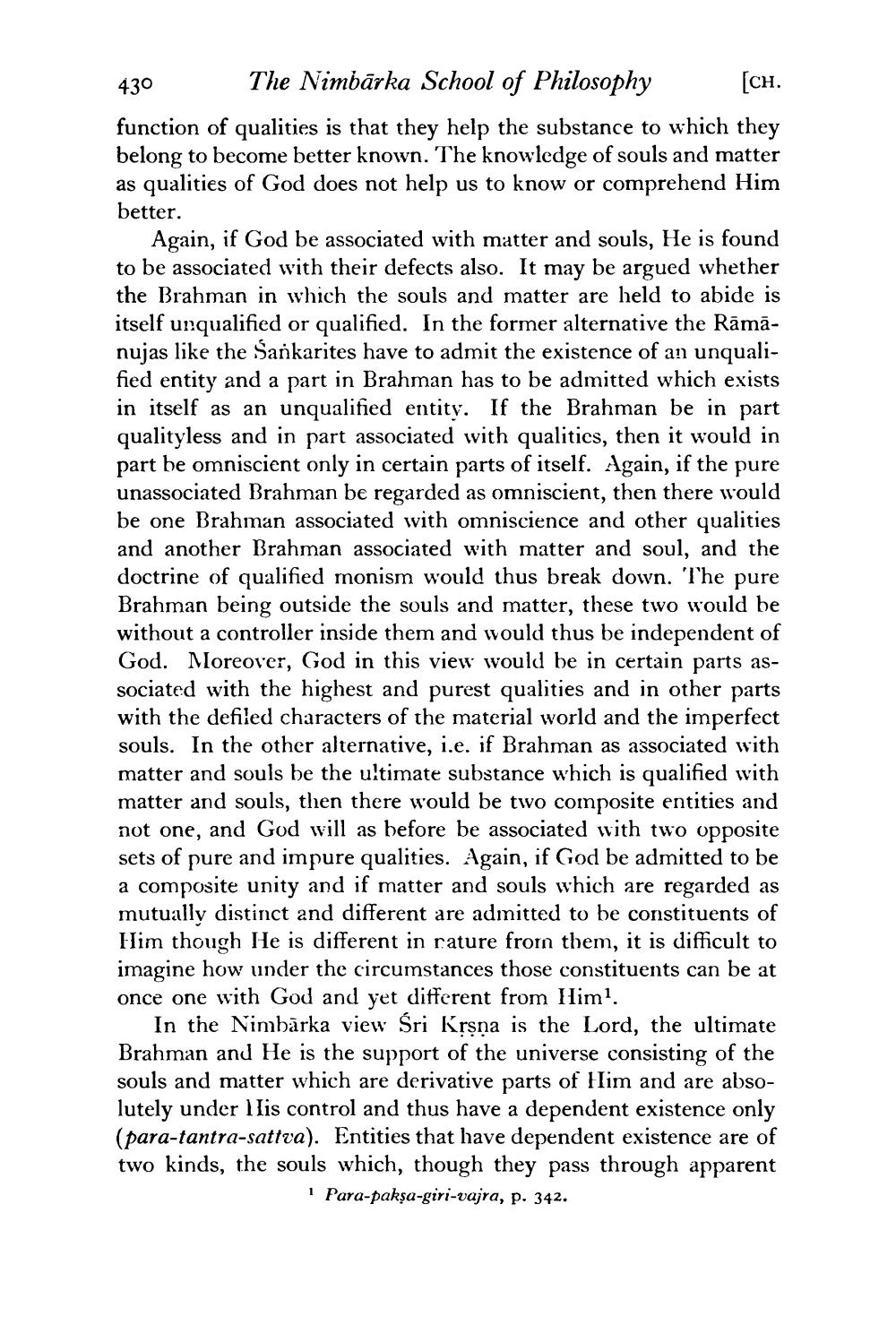________________
430
The Nimbarka School of Philosophy
[CH.
function of qualities is that they help the substance to which they belong to become better known. The knowledge of souls and matter as qualities of God does not help us to know or comprehend Him better.
Again, if God be associated with matter and souls, He is found to be associated with their defects also. It may be argued whether the Brahman in which the souls and matter are held to abide is itself unqualified or qualified. In the former alternative the Rāmānujas like the Sankarites have to admit the existence of an unqualified entity and a part in Brahman has to be admitted which exists in itself as an unqualified entity. If the Brahman be in part qualityless and in part associated with qualities, then it would in part be omniscient only in certain parts of itself. Again, if the pure unassociated Brahman be regarded as omniscient, then there would be one Brahman associated with omniscience and other qualities and another Brahman associated with matter and soul, and the doctrine of qualified monism would thus break down. The pure Brahman being outside the souls and matter, these two would be without a controller inside them and would thus be independent of God. Moreover, God in this view would be in certain parts associated with the highest and purest qualities and in other parts with the defiled characters of the material world and the imperfect souls. In the other alternative, i.e. if Brahman as associated with matter and souls be the ultimate substance which is qualified with matter and souls, then there would be two composite entities and not one, and God will as before be associated with two opposite sets of pure and impure qualities. Again, if God be admitted to be a composite unity and if matter and souls which are regarded as mutually distinct and different are admitted to be constituents of Him though He is different in rature from them, it is difficult to imagine how under the circumstances those constituents can be at once one with God and yet different from Him1.
In the Nimbarka view Śri Kṛṣṇa is the Lord, the ultimate Brahman and He is the support of the universe consisting of the souls and matter which are derivative parts of Him and are absolutely under is control and thus have a dependent existence only (para-tantra-sattva). Entities that have dependent existence are of two kinds, the souls which, though they pass through apparent 1 Para-pakṣa-giri-vajra, p. 342.




